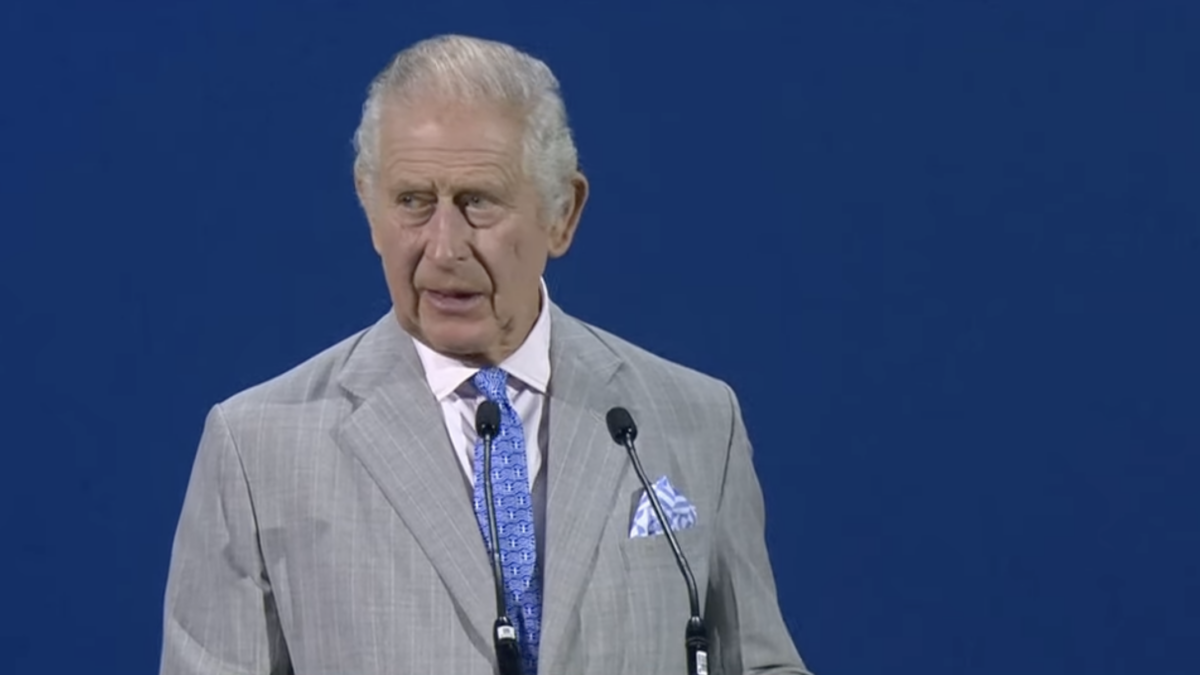
Progressives often refer to climate-change skeptics as science-deniers, despite typically believing that a person’s sex can vary at will. We are presently in the midst of The Pause: a nearly 20-year global warming hiatus during which our satellite data has demonstrated little to no change in the global surface temperature.
During this stretch of time the federal government has spent close to $200 billion on climate change. Yet the Left assumes that conservatives hold money in higher esteem than the planet Earth. Eight years of Barack Obama’s reckless efforts to combat climate change, the nebulous harbinger of mankind’s demise, have accomplished next to nothing.
We’ve heard all the same predictions over the years. We’ve managed to arrive at different conclusions about them, because to the Right diversity is not limited to race and ethnicity. Countless mainstream scientists consistently present work that contradicts the claims climate-change alarmists make. Unfortunately, exchanging ideas and viewpoints is considered problematic when it’s related to climate change because, as we’ve all heard, the science is settled.
But data aren’t driven by yearning, sentiment, or ideology. This resolute, contemptuous duplicity is antithetical to the scientific process. I’m sure the science was settled when Galileo was jailed for claiming the Earth is round. The question here is not whether you are anti-science, it is whether you view science as objective and evolving or as a method of furthering your own ideology.
Remember the Global Cooling Furor?
During the 1960s and ‘70s, Americans were rattled by the horrors of global cooling. Newsweek, Time, and National Geographic, among others, all ran pieces about how the earth was entering a cooling phase that would lead to catastrophic crop failure and mass starvation. By 2000, they said, the earth would be 11 degrees colder and we’d have stepped over the threshold of a new ice age.
Stanford University professor Paul Ehrlich, author of the 1968 book “The Population Bomb,” gave lectures about how England would no longer exist in this new ice age. Of course, that ice age never came about, and Ehrlich is now convinced that global warming will lead to cannibalism.
The environmental movement began as a much-needed effort to clean up the debris of the industrial age. It was a Republican government that forged the Clean Air Act, the Clean Water Act, the Endangered Species Act, and the Environmental Protection Agency. Now environmentalism has become an industry curated by the progressive wing of the federal government.
For the Left, oil and coal companies are greedy beasts intent on burning the world, and everything they see proves them right. It’s all old men in cowboy hats running oil refineries and chewing on cigars. Is diversity of opinion and worldview truly paramount in modern America, or is it simply an intellectually lazy and dishonest buzzword deployed only to bolster a sense of one’s moral superiority over the wicked rubes with opposing beliefs?
Big Oil Isn’t the Problem. Big Government Is
As a conservative who was unable to support Donald Trump or Hillary Clinton during the election, I am enthusiastic about the new administration’s reluctance to rubber-stamp progressive environmental policies. Over the past eight years we have experienced higher energy costs and a weaker economy with no meaningful change in global temperatures. Attempting to regulate a global problem with sweeping domestic mandates only empowers the very apparatus that the Left claims to oppose: global conglomerates with U.S. government contracts.
It’s not big oil, coal, or gas companies. It’s a government rapidly swelling with agencies that are staffed by appointed officials whose political ideology is more important than the quality of their research.
The federal leviathan is happy to let bourgeois cosmopolitan tyrants promote their cause with ludicrous, accusatory statements like this one from California’s Gov. Jerry Brown: “California will not retreat. California will not go backwards. We will not allow policies made in Washington DC to thwart our economy and become a job-killer. California will move forwards because of what is at stake – the future of the planet, the health of our children, and our economy.”
Brown knows his audience well, which uncovers a deeper issue: a dangerously provincial inclination to disregard the experience of half of the country to energize one’s own political contingency. Political gamesmanship has suppressed the fact that California’s own climate regulations have reared paradoxical consequences. These mandates are responsible for jacking up the cost of oil refining in the state by forcing companies to lay off countless workers. This has made California more dependent on foreign oil, which is obviously the polar opposite of energy independence.
And Remember the Dust Bowl Era?
During President Obama’s second inaugural address, he said, “some may still deny the overwhelming judgement of science, but none can avoid the devastating impact of raging fires and crippling drought and powerful storms.”
He is right. We cannot avoid the effects of fire and big, bad storms. But at the same time we cannot avoid the fact that wildfires are down nearly 20 percent since 1950. Should we turn our eyes from the journal Nature when it reveals that there has been very little, if any, change in global drought levels over the past 60 years?
However, it is true that California is currently experiencing a severe drought. For those who claim our planet is cooking, Americans who lived through the Dust Bowl era might have a different opinion. At its peak the Dust Bowl covered some 77 percent of the United States and lasted for eight years in the areas hardest hit. Twenty years later, the Great Plains and Southwest drought has enveloped ten states across the Midwest and south into New Mexico. At its peak it covered 62 percent of the country.
The twentieth century has indeed dealt with some very severe droughts. But the Earth’s physical record for paleoclimatic data reveals that the droughts that have haunted America over the past century pale in comparison to those of centuries past. Five hundred years ago, North America experienced droughts far more severe and for much greater duration than any we’ve seen since the onset of modern scientific measurement.
Yet for all the raging fires, crippling drought, and powerful storms, recent global land surveys have concluded that there are more than 3 trillion trees on our planet right now. That’s orders of magnitude more than were suspected. Nearly half of the more than 1 billion tree seedlings planted in the United States each year are planted by nonindustrial private landowners. These are the efforts of the people, not of government agencies that have become nothing more than repositories for groupthink, coercion, and financial corruption.
American public interest in climate change has decreased each year since 2007. That is likely to continue, but not because people hate the planet. It’s because they love it. Eighty percent of Americans will continue to recycle—Democrats, Republicans, liberals, and conservatives. Companies in the United States don’t need government mandates to balance energy efficiency with the cost of goods and services. Environmentalism is already a part of our lives, and it will continue to be—even if the newly elected Republican government ends the radical cronyism of the past eight years.









